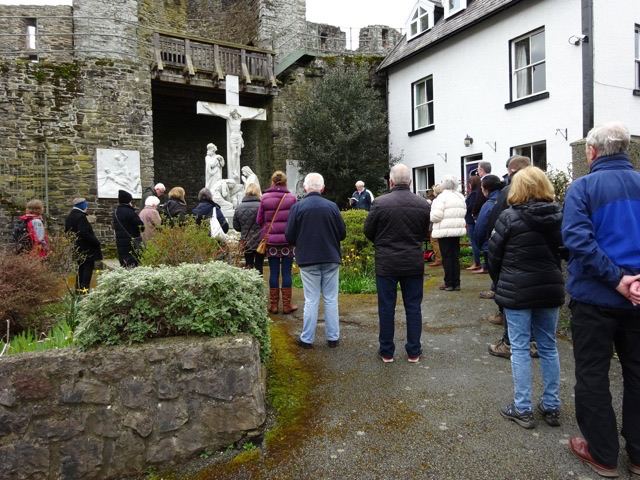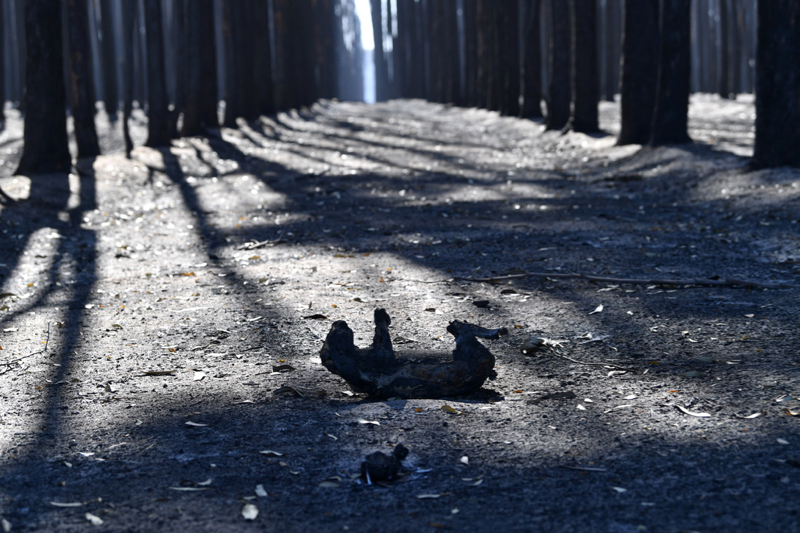The first Catholic dioceses in England and Wales have committed to divest from fossil fuels such as coal and gas, as parishes, charities and religious orders move to the fore of direct action against climate change.
The Dioceses of Middlesbrough and Lancaster announced their commitment to divest from fossil fuels at the beginning of 2020. They were joined by two Catholic religious orders - the English Provinces of the Congregation of Jesus and the Presentation Sisters - alongside 16 other local churches and Christian institutions in the UK.
They include the United Reformed Church Synod of Wales, the United Reformed Church South Western Synod and at least eight Church of England parishes.
The divestment declarations were made to mark the Epiphany and at the start of a key year for climate action globally, with the next major UN conference on the climate crisis to be held in Glasgow in November.
More than 160 other Catholic institutions around the world have already committed to divest from fossil fuels, whose emissions are the main driver of global warming. Faith institutions constitute the greatest number of organisations contributing to the global "fossil free" movement, which now stands at a total of over $12 trillion of assets divested globally.
Bishop Terry Drainey of Middlesbrough said: “With growing awareness of people’s concerns for the care of our common home, supported by the Trustees and Council of Priests of the diocese, and after thorough scrutiny of diocesan investments and with support from Operation Noah, the Diocese of Middlesbrough has decided that now is the time to divest from fossil fuels”.
He said: “The evidence and the urgency of the climate crisis are all around us.”
Last year, Middlesbrough Justice and Peace Commission produced an Environmental Policy for the diocese, which included having an Ethical Investment Policy. Lancaster Faith and Justice Commission has run educational events and supported local youth voices on the climate crisis. Lancaster Catholics have supported street protests against fracking and were represented in a CAFOD group at the UN Climate talks in Poland in December 2018. One of them, parish priest Fr Hugh Pollock, said: "Our way of life – our use of fossil fuels and rising CO2 levels – isn't just affecting us, it’s having a huge impact on the lives of people around the world, often on the poorest countries".
Sister Frances Orchard CJ, Provincial Superior of the Congregation of Jesus, said: “We had previously supported engagement with oil and gas companies, as we were impressed by the efforts of our investment managers to put pressure on those companies to change course; however, our younger members were rightly questioning our strategy, and our investment managers also become exasperated by the lack of integrity of the companies they were engaging with and agreed that the time had come to divest”.
The next joint initiative, which Churches and Christian organisations of all denominations are invited to join, will be a global divestment announcement for faith institutions in late March 2020.
Meanwhile, the Conference of Religious, which represents the leaders of religious communities in England and Wales, has set up a new Ecology Group in line with the call to “ecological conversion” in the papal encyclical Laudato Si’. It aims to help religious congregations step up their response to climate change. Days of reflection on Laudato Si’ will be held around the country in the Spring and the keynote speakers will be Sr Margaret Atkins OSA, who is based at Boarbank Hall in Cumbria, and Columban eco-theologian Fr Sean McDonagh. There will be input on practical ways to make changes by Steve Burrowes of the Laudato Si’ project in Salford diocese and John Paul de Quay of the Ecological Conversion group of Arundel and Brighton Diocese.
Read our blog on why it matters that Catholic dioceses have divested.



 Loading ...
Loading ...